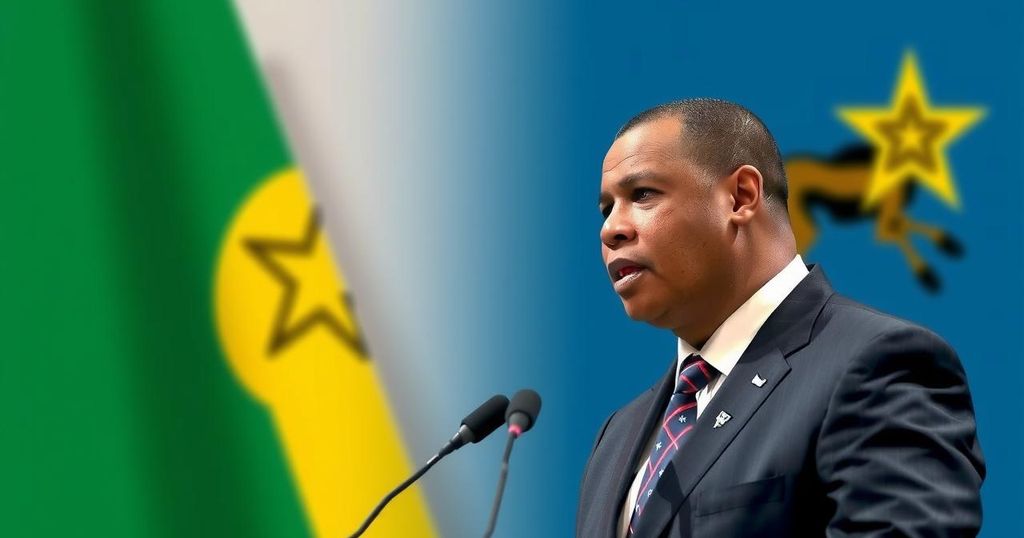Somalia’s Ministry of Foreign Affairs has expelled Ethiopian diplomat Mr. Ali Mohamed Adan, declaring him persona non grata due to actions deemed incompatible with his diplomatic role. This decision, citing violations of the Vienna Convention on Diplomatic Relations, signals a robust assertion of Somali sovereignty and a potential shift in Somali-Ethiopian relations. The outcome of this incident may hinge on Ethiopia’s response, which could either heighten tensions or prompt mediation efforts.
In a decisive assertion of its sovereignty, the Ministry of Foreign Affairs and International Cooperation of Somalia has issued an order for the expulsion of Mr. Ali Mohamed Adan, Counselor II at the Ethiopian Embassy in Somalia, designating him as persona non grata. The diplomat has been instructed to depart within a 72-hour timeframe, with Somali officials citing actions that are incompatible with his diplomatic status. The Ministry’s communication references specific violations of the Vienna Convention on Diplomatic Relations, particularly Articles 41 and 42, which obligate diplomats to honor the laws of the host country and to refrain from interference in domestic affairs. This action communicates a compelling message from Somalia that any perceived infringement upon its sovereignty will be met with resolve. This expulsion marks a critical juncture in the relationship between Somalia and Ethiopia, potentially indicating a paradigm shift in Somalia’s approach to diplomacy. Analysts have noted that this action demonstrates Somalia’s growing assertiveness on the world stage, aligning with a broader movement among African nations advocating for respect regarding sovereignty and compliance with international diplomatic protocols. Thus, Somalia is underscoring its commitment to national interests and establishing a standard that compels foreign diplomats to adhere strictly to international norms. The repercussions of this diplomatic decision are being closely monitored, particularly concerning Ethiopia’s potential response. Diplomatic expulsions are often viewed as a tangible breach of trust, and the subsequent Ethiopian reaction may either exacerbate tensions or stimulate calls for intervention by the African Union to mitigate escalation. Moreover, this incident highlights a wider trend among African states prioritizing their autonomy in diplomatic interactions. For Somalia, the expulsion of the Ethiopian diplomat represents a significant stride toward recalibrating its bilateral relations with Ethiopia, reaffirming a zero-tolerance stance against perceived foreign interference while elevating expectations for diplomatic accountability throughout the Horn of Africa.
The recent expulsion of an Ethiopian diplomat by Somalia occurs within the context of ongoing complexities in Somali-Ethiopian relations. Diplomatic immunity is governed by international treaties such as the Vienna Convention on Diplomatic Relations, which sets the framework for how diplomats should operate in foreign nations. Somalia’s decision to declare Mr. Ali Mohamed Adan persona non grata highlights a surge of nationalism and autonomy amid broader geopolitical shifts within Africa, where nations are increasingly insisting on respect for their sovereignty and adherence to established diplomatic conduct. This development is reflective of Somalia’s efforts to reshape its international image and assert itself against external influences.
In conclusion, Somalia’s expulsion of the Ethiopian diplomat serves as a significant declaration of its sovereignty, aligning with a growing trend of African nations asserting their autonomy in diplomatic affairs. By invoking violations of international law, Somalia aims to establish a precedent for the conduct of foreign diplomats, demonstrating a commitment to protecting its national interests. The international community is now poised to observe the implications of this decision, particularly in relation to Ethiopia’s response and the overall stability in the Horn of Africa.
Original Source: addisinsight.net






